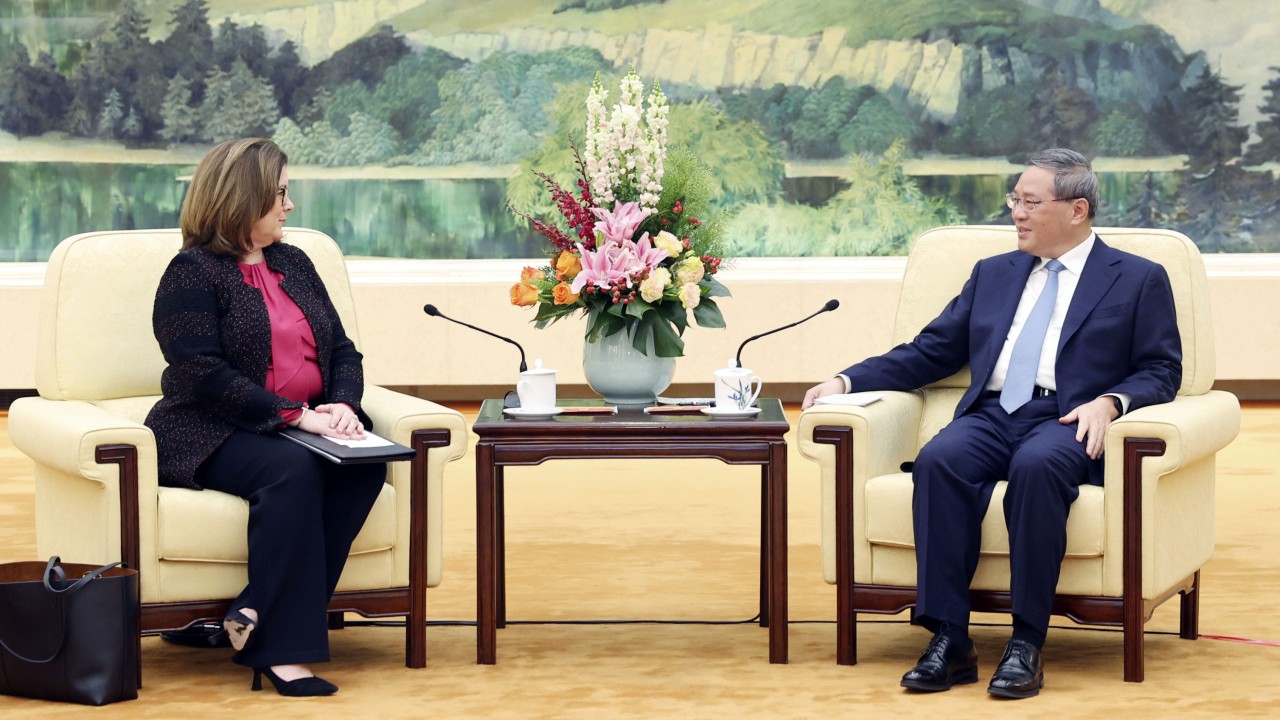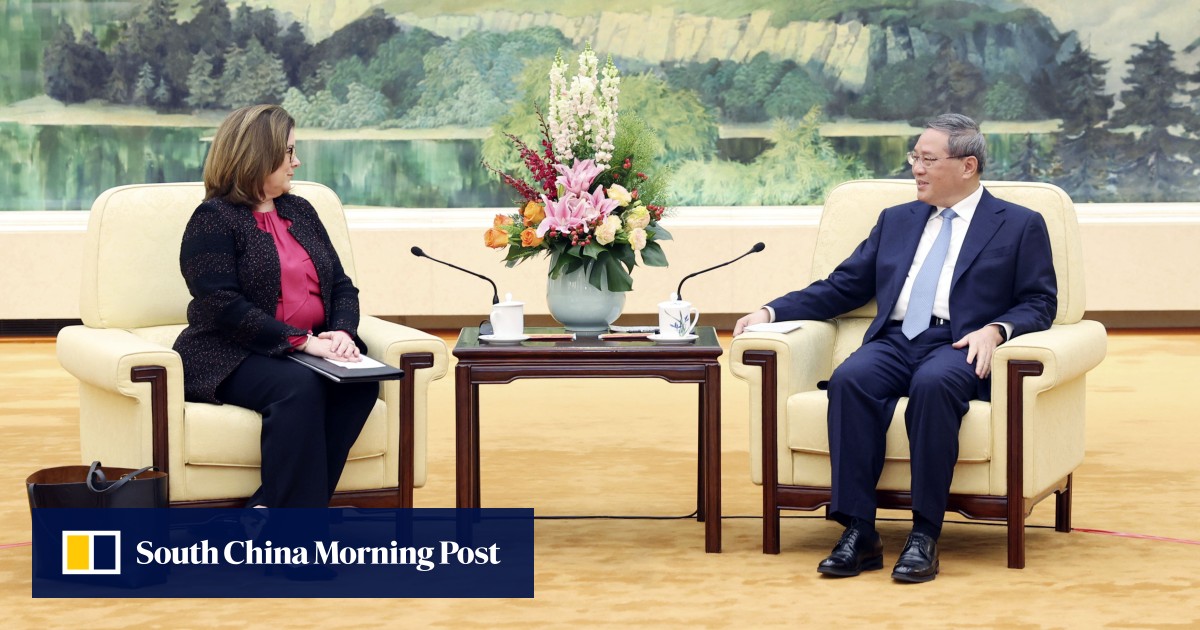
The United States Chamber of Commerce has voiced apprehensions about potential overcapacity in a variety of Chinese industries linked to the nation’s ambitious “Made in China 2025” plan after a delegation visited Beijing this week.
The chamber is the largest American business lobbying group and the delegation, led by its chief executive, Suzanne Clark, aimed to address the complicated trade dynamics and challenges between the two nations as their economic relations come under increasing tensions.
Chinese premier meets US business group in Beijing as part of charm offensive
Chinese premier meets US business group in Beijing as part of charm offensive
In high-level meetings with Chinese government officials and business leaders, including Premier Li Qiang, the delegation discussed issues related to China’s non-market economic policies, digital protectionism, commercial coercion and intellectual property theft.
It also “conveyed business concerns regarding China’s use of heavy-handed commercial pressure tactics, digital protectionism, and intellectual property theft”, the chamber said in a release on Friday.
Launched by Beijing in 2015, “Made in China 2025” aims to transform the nation’s manufacturing sector by focusing on the rapid development of 10 hi-tech industries, including electric cars, telecommunications, robotics and artificial intelligence systems.
However, the initiative’s approach – which is fuelled by state subsidies, the dominance of state-owned companies, and the aggressive acquisition of intellectual property – has sparked controversy.
Critics, particularly from the US and other industrialised democracies, argue that these tactics undermine international trade norms and pose a threat to those nations’ security.
The delegation also met with US Ambassador Nicholas Burns and members of the foreign diplomatic corps and business community. The talks focused on promoting a mutually beneficial relationship while safeguarding US national security interests.
The delegation argued against a complete decoupling of the two economies. Instead, it called on China to institute more transparent and predictable procedures for the authorisation of companies, to relax restrictive national security standards and to clarify its foreign investment policy.
The chamber reiterated its support for trade that promotes employment without being hampered by national security concerns.
In ‘unprecedented action’, US to probe Chinese tech in cars over security risks
In ‘unprecedented action’, US to probe Chinese tech in cars over security risks
“While affirming the importance of US government efforts to safeguard national security, the chamber emphasised its staunch support for job-supporting commerce with China for the majority of the commercial relationship where national security concerns are absent,” the statement reads.
The Chinese embassy in Washington did not immediately respond to a request for comment.

